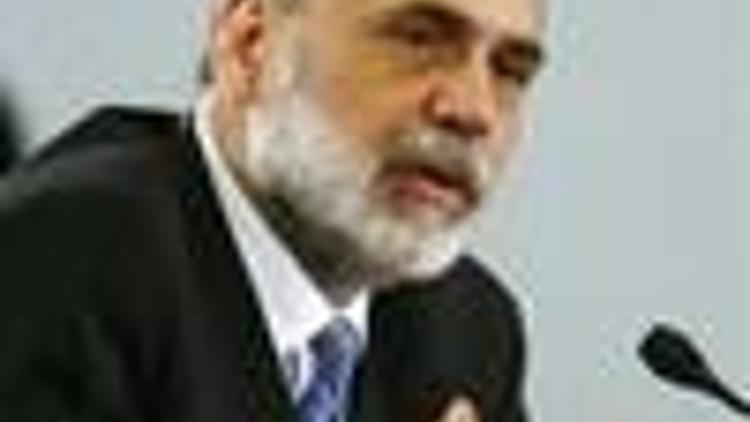Fed expected to sit tight on interest rates as oil prices moderate
Güncelleme Tarihi:

The United States Federal Reserve is expected to hold interest rates steady on Tuesday, acknowledging financial conditions remain strained, but making clear it is still worried about inflation despite a recent pullback in energy prices.
Economists say the central bank is likely to tweak the language of its statement, released when announcing its decision, to reinforce the message that the next rate move will be upward, even though price pressures have eased a bit since its last meeting in late June.
But no interest rate hike appears imminent. The Fed is expected to hold off raising rates until the housing sector is more stable.
"They don't want to give the impression that somehow they have lost their concern over inflation ... that would be fatal," said former Fed Governor Lyle Gramley, who thinks the Fed could hold rates at 2 percent until well into next year.
A Reuters poll of 15 top bond dealers on Friday found that all of them expect the Fed will leave the benchmark overnight federal funds rate steady at 2 percent.
It is expected to announce the decision at about 2:15 p.m. EDT on Tuesday.
While a number of Fed officials have been vocal in arguing about the danger of holding rates too low for too long, recent data have supported a patient monetary policy approach, with falling employment and subdued second-quarter growth underscoring the fragile state of the economy.
"The risks of economic weakness and rising inflation remain relatively balanced," Bank of America senior economist Peter Kretzmer said in a note to clients. "The Fed will maintain its accommodative stance for now, while refinements to its enhanced liquidity facilities help ease financial strains," he added.
Meanwhile, financial firms have continued to wrack up eye-watering subprime mortgage losses. This ongoing pain prompted the Fed last week to confirm that it still considers financial market conditions to be "unusual and exigent" as it prolonged a cash lifeline to investment banks until January.
"They still see downside risks to the economy and the news from financial firms has not been good," said Robert Eisenbeis, chief monetary economist at Cumberland Advisors and a former head of research at the Federal Reserve Bank of
High headline inflation amid soaring energy and food prices has troubled the Fed's rate-setting Federal Open Market Committee and prompted a series of dissents this year in favor of a tighter policy stance.
Recent remarks by Minneapolis Fed President Gary Stern raise the possibility that he might vote in favor of a rate hike next week. This could add him to the ranks of other hawks, like Dallas Fed President Richard Fisher, who has dissented at every meeting this year, and Philadelphia Fed boss Charles Plosser, who has dissented twice.
However, Plosser did not dissent at the last meeting, when the Fed halted its rate-cutting campaign and ratcheted up the anti-inflation rhetoric, and the subsequent decline in oil prices may deflate the danger of a multiple dissent.
"I think the decline in oil prices has pulled some of the hawks' fangs a bit and they won't be quite as eager as a group to raise interest rates now," said Gramley. "They didn't dissent last time. Why would they dissent now that oil is $20 a barrel cheaper?" he said of Plosser and Stern.
In addition, recent data suggest wage pressures are muted.
A report on employment costs on Thursday showed wages and salaries have advanced a moderate 3.2 percent over the 12 months through June, the same as in the period through March, while the closely watched jobs report on Friday showed the 12-month change in average hourly earnings holding at 3.4 percent. The last time it was lower was January 2006.
Fisher, on the other hand, is expected to again vote for higher rates. Remarks he made to the New York Times published on Friday emphasized his worry over price pressures.
"The power to bargain for higher wages, a power that we assume was dismantled, may not be so feeble," he warned.

